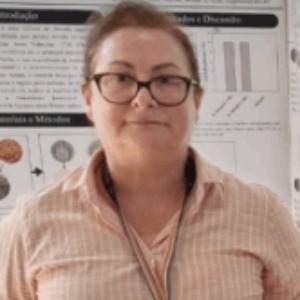Title : The important role of Zebrafish in ecotoxicological studies
Abstract:
Residues from various pesticides, when they come into contact with water, contaminate fish in various locations around the world, altering hormonal activity during embryonic development, with anatomical and physiological changes, gonadal abnormalities and changes in the reproductive system. The sublethal effects of pesticides concern endocrine disruption in multiple fish and amphibians, with changes in hormonal activity during embryonic development, leading to changes in the anatomy, behavior and reproductive system of these animals. Therefore, the conscious use of these substances to control various pests in crops requires greater attention and requires further research in this field of biomedical science. Currently, the early-life zebrafish (Danio rerio) is widely used as a sensitive and reliable alternative toxicity model, with several advantages, including embryonic transparency, rapid reproduction and development, sequenced genome, in accordance with the 3Rs Principle - which deals with the use of animals in research with ethics and principles aiming at reduction, replacement of animals and refinement of research, ease of breeding, small size of these fish when adults (4-5 cm) and more than 70% similarity to the human genome, this fish of the cyprinid family "zebrafish" or "zebra fish" (Danio rerio) (Hamilton-Buchanan, 1822) as it is also known, has been increasingly used in scientific research, in several areas such as genetics, toxicology, oncology, ecology, and is even recommended by the Brazilian Association of Technical Standards (ABNT) and the Organization for Economic Cooperation and Development (OECD) for testing ecotoxicological.
t is important to emphasize that most studies analyze the harmful effects of pesticides for each active ingredient separately, despite the fact that exposure to pesticides is present in many locations and occurs simultaneously, leading to continued contact with multiple pollutants. This reinforces the need to analyze mixtures in continental waters, especially rivers. In this lecture we address the importance of the FET (Fish Embryo Toxicity) Test for ecotoxicological studies and provide data on water from some Brazilian rivers from the perspective of pesticide residues and their harmful effects on fish.



